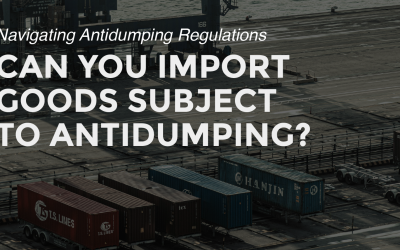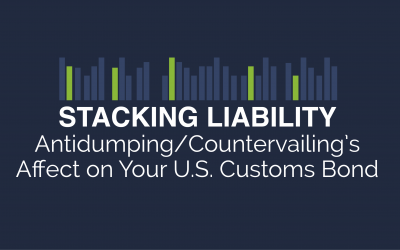For many companies that import into the United States, the threat of antidumping action looms over every entry made. But what happens when the threat becomes real?
In international trade, the question of “what is the result of the threat of antidumping action” looms large, influencing the behavior of globally engaged firms. Here we will dive into the repercussions of this threat, shedding light on how it alters the strategies of internationally involved companies and its broader implications.
Navigating the Antidumping Maze: Understanding the Basics
At its core, an antidumping law safeguards against the unfair practice of “dumping” goods into a foreign market at prices below fair market rates. These laws aim to protect domestic industries from the adverse effects of such practices by curbing the ability of foreign entities to exploit competitive advantages through aggressive pricing.
The Significance of Antidumping Measures
Antidumping laws recognize the intricate tapestry of international markets, where different rules, regulations, and economic environments coexist. They countermeasures to prevent companies from leveraging domestic laws, rules, or environments to inundate foreign markets with goods sold at unfair prices. The overarching goal is to maintain a level playing field and discourage actions that could harm domestic industries.
The Debate on Efficacy: Striking a Balance
The effectiveness of antidumping laws remains a subject of intense debate. Advocates argue that these regulations are essential to prevent the distortion of free markets and artificially inflated costs of goods. On the flip side, critics contend that antidumping measures can disrupt the natural efficiency of the market. This ongoing debate underscores the complexity of international trade dynamics and the challenges of balancing regulation and market forces.
Antidumping Action: Impact on Pricing Strategies
Central to our exploration is the profound impact of the threat of antidumping action on the pricing strategies of internationally involved firms. Faced with the risk of punitive measures, companies may become hesitant, if not entirely unwilling, to resort to aggressive price-cutting tactics when entering a new foreign market. This reluctance stems from the potential legal consequences and financial penalties for violating antidumping laws.
Higher Prices, Limited Competitiveness: Unintended Consequences
Consumers feel the consequence of this cautious approach in the targeted foreign markets. With firms refraining from aggressive pricing, consumers may pay higher prices for goods. Additionally, new entrants’ competitiveness in these markets may be hampered, limiting their ability to challenge established players. The delicate balance between preventing unfair trade practices and fostering healthy competition becomes apparent after the threat of antidumping action.
Adapting to the Antidumping Reality
As internationally engaged firms navigate the complexities of global trade, understanding “what is the result of the threat of antidumping action” is paramount. Striking a balance between regulatory measures and market dynamics is crucial for fostering fair competition and sustainable economic growth.
In this landscape, Trade Risk Guaranty (TRG) stands as a knowledgeable ally, offering expertise to businesses grappling with the challenges of antidumping laws. Trust TRG to navigate the intricacies and contribute to a resilient and competitive global market.
What Are Antidumping and Countervailing Duties?
Watch the following video for a brief explanation of antidumping and countervailing.
Did you like that video? Subscribe to our YouTube Channel to explore more informative videos on international trade topics.







